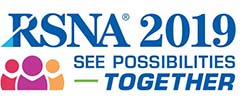

ParticipantsRobert M. Pascuzzi, MD, Indianapolis, IN (Presenter) Nothing to Disclose
Valerie P. Jackson, MD, Tucson, AZ (Presenter) Nothing to Disclose
Amyotrophic lateral sclerosis (ALS) is "the neurologist's disease". Originally studied by the Father of Neurology Jean-Martin Charcot in the 1860s and formally reported by him in 1874, the subsequent 145 years have been characterized by neurologists obtaining a thorough history and conducting a classic bedside examination to reveal the localization of asymmetrical upper and lower motor neuron deficits with an indolent progressive clinical course best described as a "creeping paralysis". At least 5-10% of cases are known to be genetic and the rest are of unknown cause. Theories of inflammatory, infectious, autoimmune, toxic, and traumatic contributions to the disease remain. Perhaps no other disease over such an expanse of time has generated similarly strong reactions, fears, and existential questions as ALS. Even physicians who experience occasional fasciculations lie awake at night contemplating this diagnosis. The backbone of clinical management of ALS is symptomatic therapy. Today there are two FDA approved drugs that slow down the disease. Riluzole reduces glutamate excitotoxicity and edaravone is an antioxidant. Both treatments have only a mild impact on the disease. Observations from a broad collage of basic and clinical investigations have given us a diverse and imaginative array of new treatment strategies for ALS. Neuroprotection, anti-inflammation, genetic and protein modulation, inhibition of excitotoxicity, anti-viral, pro-mitochondrial, and therapeutic stem cell applications are all receiving attention in clinical trials in patients with ALS. Lou Gehrig (The Iron Horse) himself entered a clinical trial for ALS in 1939 with surprising results. Good science is the hope for patients and their caregivers- and the future of meaningful treatment.